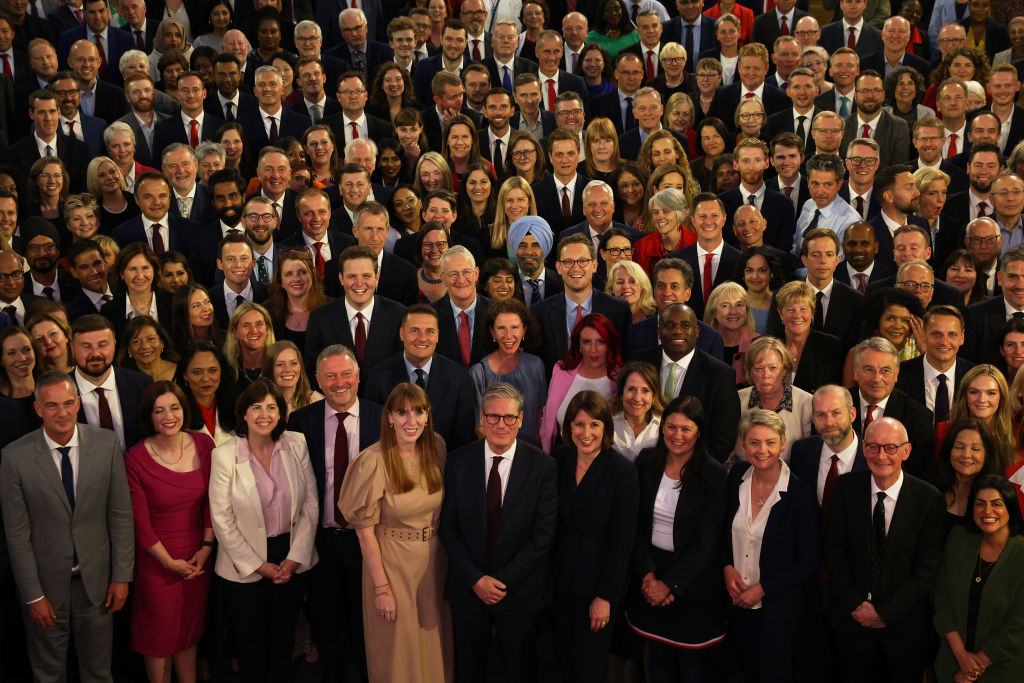
Renewed threats to the government from the left and from Reform have left Labour MPs feeling twitchy about the future. One YouGov poll last week found that 18 per cent of voters would be willing to vote for a Corbyn-led party, eating into Labour’s base, while Reform is polling on 27 per cent.
Some of the 2024 intake have begun to organise and collude to work out how exactly their party can cling onto power. Last Thursday, the Living Standards Group was launched – a caucus of 100 MPs, led by eight members of the new intake including the MP for Loughborough, Jeevun Sandher, and the two co-chairs of the Labour Growth Group, Lola McEvoy and Chris Curtis. They have called on the government to refocus on more radical ideas to tackle the cost of living otherwise, they warn, Labour won’t hold on to power in 2029.
This is an interesting moment for the arrival of another back-bench caucus. Keir Starmer is likely approaching his non-governmental colleagues with caution after more than 100 MPs staged a damaging rebellion against Liz Kendall’s welfare bill, leading to yet another government U-turn. The Living Standards Group insist that the timing of their arrival was coincidental. But coming so shortly after a major defeat for the government, this is a prime moment to put pressure on the government.
Although a few welfare rebels are members, the aims of this cohort seem to be favourable to the government. Luke Murphy, one of the eight MPs involved in the leadership of the group said that its founding is a “recognition that we need to work harder to make sure that we’re generating new ideas which focus on the cost of living”. He added: “We don’t want people to turn away from mainstream parties. We want to demonstrate that Labour gets it.”
According to Sandher, the group’s de facto leader, conversations around the formation of a group focused on raising living standards have been ongoing for some time. His idea was to form a coalition of MPs from across Labour’s internal political spectrum to create a “policy funnel” for ideas on how the government can fix the cost-of-living crisis – and fast. These ideas will follow three principals: they must be progressive and aimed at middle earners, they must enhance economic growth, and they must be fiscally neutral (eg, they are not dependent on borrowing). The group will be governed by a board which the eight founding MPs will sit on, which will meet to discuss organisation, plans and ideas.
“We’ll have a way for people to sign up to those ideas, publicly or privately and take it forward from there,” he said. The group will not take a collective position due to the “ideological diversity” of the MPs involved (the letter was signed by members of the Labour Growth Group and of their friendly opponents who they have facetiously termed the “vegetable lobby”). Although some of the 100s’ support is not that substantial – one MP texts: “I just signed [the letter] cos I agreed with it.”
But what unites these MPs is a genuine anxiety that they may be out of a job come the next election. “We’ve been in power for a year,” Murphy said, “but families are still doing the maths on rent, groceries, energy bills and childcare, and for so many people, they just don’t add up. We know that’s not just bad luck.” The group, therefore, is aimed to keep the government accountable in fulfilling its promise to voters. “Wherever people are thinking of putting their vote, living standards are at the core of most people’s vote,” he said. Sandher agreed: “If you’re young – and you go and get a degree – then you get to the major cities and you realise it’s not really affordable and we’re losing votes on both sides because of that,” he said. “Fixing that problem is clearly an electoral imperative.”
Holding together a coalition of Labour MPs (a party notoriously fraught with factionalism) will be challenging, especially considering this group will not explicitly request that involved MPs publicly back its demands of government. But the arrival of the Living Standards Group clearly indicates that Labour MPs have woken up to the true depth of the electoral threats their party is facing – from the left and from the right.
[See also: Unite’s dirty war on Angela Rayner]





